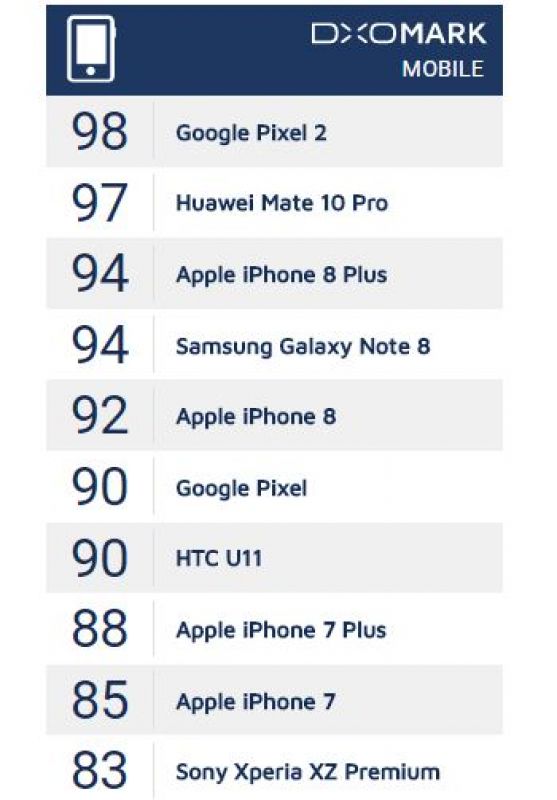Huawei's Mate 10 Pro beats the iPhone 8 Plus's camera in DxOMark rankings
The Huawei Mate 10 Pro scores 97 on DxOMark's photography scale for smartphones.

Every now and then, we hear about an ultra-expensive flagship smartphone breaking records at photography performance. This year, HTC’s U11 took the lead with a DxOMark of 90 and we thought it would be a while before it gets shattered. Within 4-5 months, Apple’s latest pair of iPhone 8 models triumphed the U11 with a maximum score 94, which was one of the shortest stints for any smartphone as Google’s Pixel 2 shattered everything in the market with a score of 98. And now, there’s a new addition to this list — Huawei Mate 10 Pro.
Huawei had been teasing the Mate 10 Pro as a better phone than the iPhone X and it seems that they were indeed correct as far as photography is concerned. The Mate 10 Pro with its dual cameras beats the iPhone 8 Plus’ score 94 with a DxOMark of 97, which is unarguably a very high score. It still falls a point short of Google Pixel 2’s 98 but is somewhat closer to the flagship from the maker of Android than Cupertino’s phablet.
The Mate 10 Pro comes with a 12MP RGB sensor and a 20MP monochrome sensor, which is tuned for taking more detailed photos. DxOMark hails the Mate 10 Pro’s camera to preserve detail in low-light situations, good exposure and wide dynamic range, fast and repeatable autofocus as well as good bokeh simulation. It still suffers from display exposure instabilities when shooting consecutive pictures and artefacts are sometimes visible in shots of the sky. The Mate 10 Pro was also praised for fast and accurate autofocus, motion reduction, pleasant colours, accurate white balance, good exposure, and low noise levels.
Therefore, it is clear that the boffins at Huawei weren’t kidding when they said their phone was better than the iPhone; at least in photography. We still don’t know how the Mate 10 Pro fares against the iPhone 8 Plus in real-world performance but it shouldn’t be a very large gap. The only name that we are yet to see in this list is the iPhone X, which may or may not challenge the Google Pixel 2. all we have to do is wait and see.
(source)

